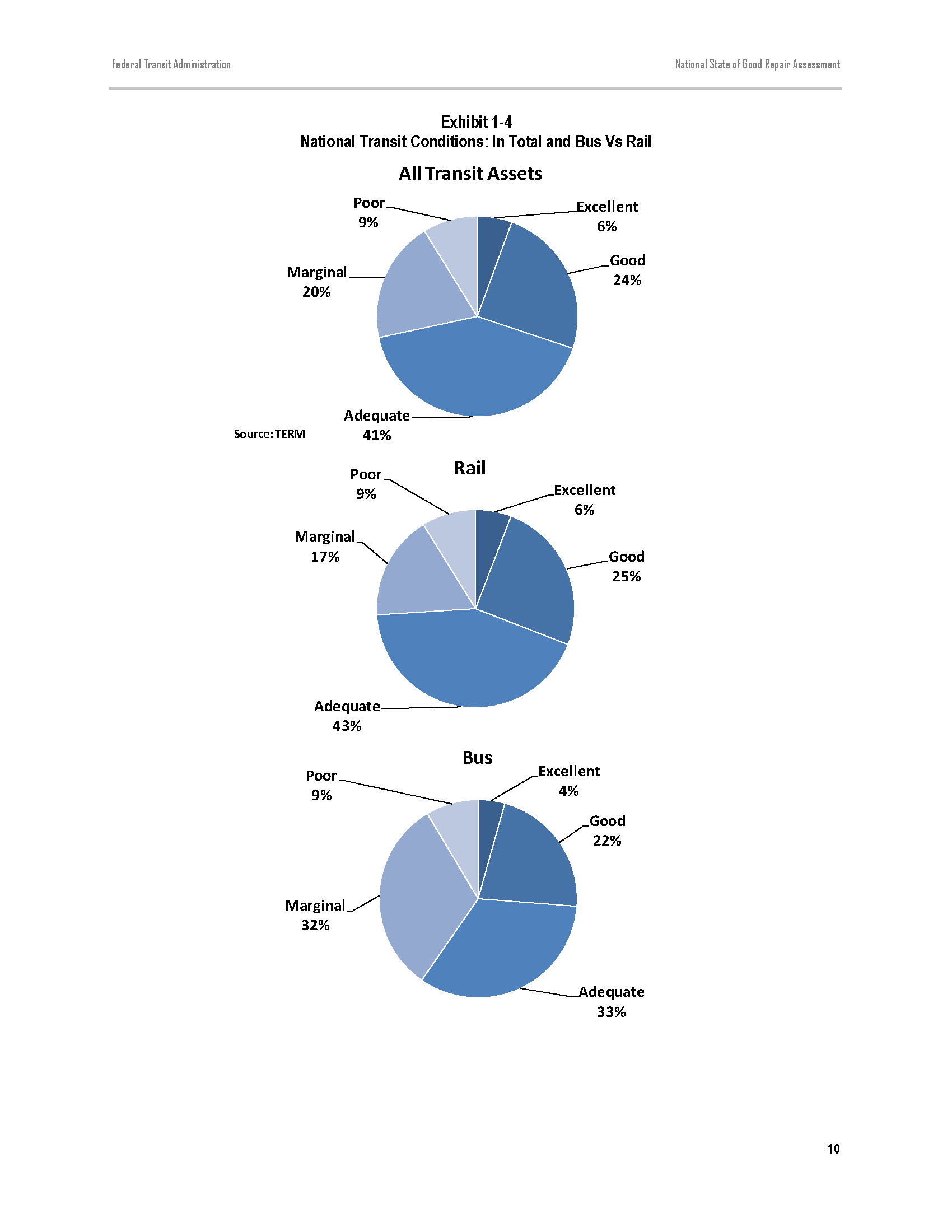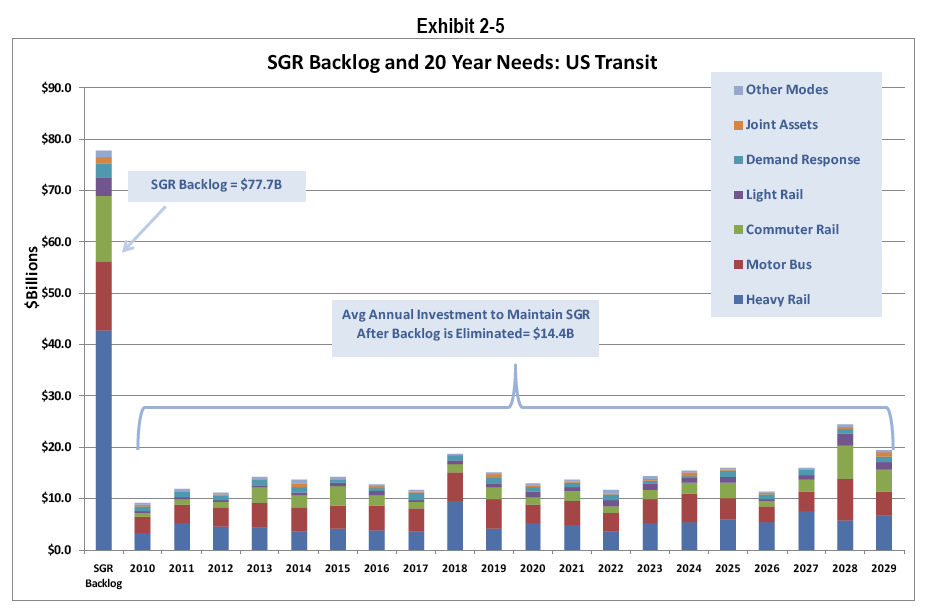FEDERAL TRANSIT ADMINISTRATION
Executive Summary
Overview
Following the April 2009 Rail Modernization Study, a report requested by Congress to assess the level of capital investment required to attain and maintain a state of good repair for the nation’s seven largest public transportation rail systems, Transportation Secretary Ray LaHood tasked FTA with expanding the scope of the study to assess the level of investment required to bring all of our nation’s public transportation (transit) systems into a state of good repair. The 2009 Rail Modernization Study had estimated the current SGR backlog for the seven rail operators to be $50 billion ($2008). The study also determined that $5.9 billion in annual reinvestment is required to avoid further expansion of that backlog.
While the seven agencies included in the 2009 Rail Modernization Study are responsible for a majority of the nation’s transit assets (including most of the nation’s oldest rail assets), the Study’s findings – in particular the magnitude of the investment backlog – emphasize the need for a more comprehensive understanding of transit reinvestment needs. This 2010 National State of Good Repair Assessment evaluates the level of investment required to bring all U.S. transit assets – including the assets of all urbanized area and rural transit operators – to a state of good repair. The analysis presented here describes a current national SGR backlog of an estimated $77.7 billion ($2009). It also estimates that an annual average of $14.4 billion in normal replacement expenditures would be required to keep that backlog from getting larger.
Study Scope
The difference in scope between the Rail Modernization Study and this National SGR Assessment is that the former focused only on assets associated with the nation’s seven largest rail operators. These agencies do not represent a significant share of the nation’s non-rail ridership, non-rail assets (including bus, paratransit and vanpool) or total agency modes1. Even for rail transit they only include 51% of the nation’s track miles and 74% of rail vehicles. Moreover, the Rail Modernization Study did not include the more than 1,300 agency-modes and over 20,000 vehicles owned and operated by the nation’s rural transit operators (assets that are included in this National SGR Assessment). The scope of this National SGR Assessment includes, to the best of our knowledge, all transit assets in the United States.
Specifically, this expanded assessment considers the SGR reinvestment needs of the following:
Modes:
- Rail (heavy rail, light rail, commuter rail, automated guideway, and monorail)
- Bus and related (motor and trolley bus, demand response, and van pool)
- Joint assets (including administrative facilities and non-revenue support vehicles)
Agency Types:
- Urbanized operators (5307)
- Rural operators (5311)
Asset Types:
- Guideway (track and structures)
- Facilities (admin buildings, maintenance buildings and yards)
- Systems (train control, traction power, communications, revenue collection)
- Stations, park and rides, and shelters
- Vehicles (revenue and non-revenue)
Current Asset Conditions
This study begins with a preliminary assessment of national transit reinvestment needs based solely on the physical condition of the existing stock of transit assets. A summary of this analysis, developed using FTA’s Transit Economic Requirements Model (TERM) based on the asset data supplied by a large sample of urban transit agencies, is presented in Exhibit ES-1.
Roughly one-third of the nation’s transit assets (weighted by replacement value) are in either marginal or poor condition, implying that these assets are near or have already exceeded their expected useful life.
About the Federal Transit Administration
www.fta.dot.gov
“FTA is one of 11 operating administrations within the U.S. Department of Transportation with over 500 employees located in Washington, DC and 10 regional offices across the nation. As authorized by the Safe, Accountable, Flexible, Efficient Transportation Equity Act: A Legacy for Users of 2005 (SAFETEA-LU), the FTA provides stewardship of combined formula and discretionary programs totaling more than $10B to support a variety of locally planned, constructed, and operated public transportation systems throughout the United States. Transportation systems typically include buses, subways, light rail, commuter rail, streetcars, monorail, passenger ferry boats, inclined railways, or people movers.”
Tags: Department of Transportation, Federal Transit Administration, FTA, National SGR Assessment, Rail Modernization Study, Ray LaHood, SGR, State of Good Repair








 RSS Feed
RSS Feed